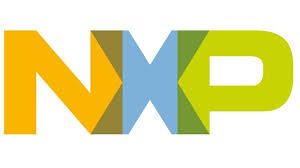NXP today announced the launch of its RF chip family to advance long-range smart car keys. The chip family offers two-way RF link functionality to enable bidirectional communication between the key fob and the car at a distance of up to 500 meters. In addition to traditional remote key functionality to unlock/lock the vehicle and open/close the windows and trunk, smart keys are set to enable drivers to check the status of various functions in the car such as fuel and battery levels and the ability to preset the temperature desired prior to their arrival at the vehicle.
The latest announcement is part of NXP’s Secure Connected Car solution. The use of a bidirectional link enables a more secure solution than one-way key fobs that have been the subject of recent hacking activities reported in the news. With a two-way connection, challenge/response scenarios can be run to ensure the key fob and the vehicle communicating with each other are really the key fob and the vehicle.
 The solution was developed in conjunction with automotive tier ones and is available today in the BMW i8 smart key. This isn’t something that will take years to come to market. The display key enables the traditional key fob functions, along with checking the status of many key vehicle status measurements as well as enabling actions such as setting a temperature remotely, a function that today is enabled by some OEM smartphone apps.
The solution was developed in conjunction with automotive tier ones and is available today in the BMW i8 smart key. This isn’t something that will take years to come to market. The display key enables the traditional key fob functions, along with checking the status of many key vehicle status measurements as well as enabling actions such as setting a temperature remotely, a function that today is enabled by some OEM smartphone apps.
To me, the BMW i8 smart key looks to be large enough to be comparable to some smartphones; so I wondered about the key differences. In discussions with NXP, I learned there are two that really stand out. There is a latency issue when using smartphone apps and the result is not as instant as pushing the button on the key fob. This would likely annoy many of us; certainly it would me. And not to be forgotten is the data connection required with a smartphone app, which would definitely be an issue when traveling to a remote area.
Although this functionality will begin with luxury brands and models, there is no reason to not expect that over time it will become more widely available across the automotive market. I also wondered if we might see services becoming available in addition to the car control functionality. One idea put forth by NXP was that in the future it could be possible to envision payment services also being enabled via a smart key.
As I thought about the 500-meter distance, I wondered about the potential to unlock my car without meaning to when it’s not within my range of view by hitting the key accidentally. NXP assured me that this is protected against on many levels:
- First, the key fob always shows the status of your car – locked or unlocked.
- Second, the distance at which the key fob will work can be set by the OEM and set for specific functions – for example lock/unlock could require line-of-sight distance.
- Finally, the standard relocking that occurs on most vehicles are unlocked by the key fob and no interaction occurs.
All in all a pretty cool set of new options is coming to the market and continues the advancement of smarter connected cars.
Like what you read? Follow me on Twitter!
Claudia Bacco, Managing Director – EMEA for RCR Wireless News, has spent her entire career in telecom, IT and security. Having experience as an operator, software and hardware vendor and as a well-known industry analyst, she has many opinions on the market. She’ll be sharing those opinions along with ongoing trend analysis for RCR Wireless News.

